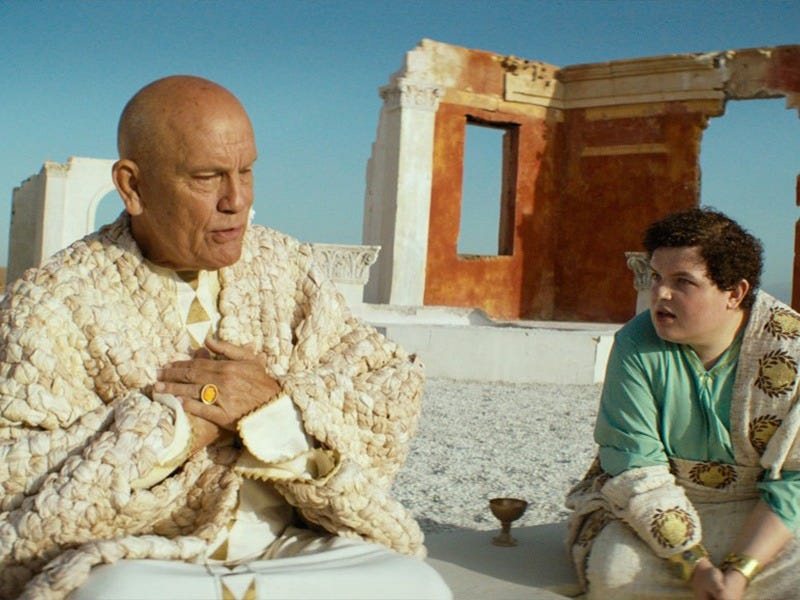Seneca's mistake
The Stoic at the emperor’s table
Seneca felt, as he watched the Golden House rise on mountains of loot, that he must get clear of politics without delay. Nero had become an offense to all Stoic principles, an embodiment of luxury and excess. The icons of the gods themselves were being smelted into the emperor’s tableware. The twilight realm in which Seneca dwelt had grown gloomier than ever.
Dying Every Day: Seneca at the Court of Nero
That’s the anguish of attempting to undo what one’s past choices set in motion. Did Seneca know how things would have ended at this point?
It’s a perennial debate within Stoicism – why did Seneca, the Stoic sage, advise one of the most infamous Roman emperors?

Nero was known for being cruel and decadent. Someone more interested in playing the role of an artist than an emperor. It’s not clear whether he played either role well.
And yet Seneca was his personal tutor and advisor.
I think there are a few lessons here, but it’s something worth mulling over for years.
The first is that Seneca played an instrumental role in running the empire well with Burrus and Agrippina (another senior advisor and Nero’s mother). Becoming Nero’s tutor put Seneca in the position to play the role of competent statesman, at least for a while. Perhaps that is sufficient justification for allying himself with Nero, who at that time, had not shown his full character. It is said that when Nero was young Rome ran more smoothly due to the influence of Seneca, Burrus, and Agrippina.
The second is that you can’t lead the unwilling to philosophy. Whether Nero saw Seneca as a hypocrite or a sage, his teaching was not effective. That is evidence that Seneca was not an effective teacher, but it isn’t damning. History is replete with examples of vicious people who ignored the virtue of their mentors. Indeed, thousands, perhaps millions, of people have benefited from Seneca’s works suggesting that the fault was not with him.
The third is that it’s always important to do the right thing, for the right reason, and at the right time. Did Seneca join forces with Nero because he saw that the empire needed a stable set of hands? Or was it a purely selfish calculation dressed up in high-flown rhetoric? At the end of the day, he may be the only person to know. So there’s a lesson in judging others. We can reflect on the nature of their actions, but others’ motivations will always remain hidden. Especially in cases like Seneca – where we’re thinking about a messy high-stakes domain like politics, a wide range of motives, and an incomplete historical record.
Let’s end with one of Seneca’s lines:
First, however, it’s easier to shut out harmful things than to govern them, easier to deny them entry than to moderate them once they have entered. Once they’ve established residence, they become more powerful than their overseer and do not accept retrenchment or abatement.
On Anger


I am not sure that Publius Suillius Rufus would have agreed with the article’s charitable view of Seneca. As Tacitus records, Suillius asked:
“By what kind of wisdom or philosophical principles had Seneca, within four years of royal favour, amassed three hundred million sesterces? In Rome, the wills of the childless were, as it were, caught in his net, while Italy and the provinces were drained by boundless usury.” (Annals 13.42)
Yet that kind of charge is common enough though out history. We hear it not only about Seneca, but also about Marcus Aurelius and others. To me, it is a bit like discovering your father’s hidden vices, it may be unsettling, but in the end it changes nothing. Perhaps they were not sages, nor did they claim to be. But as this article rightly points out, their works have helped many to examine their lives and to flourish. That legacy endures, regardless of the flaws of the man behind the words.
That didn't really end very good for him.